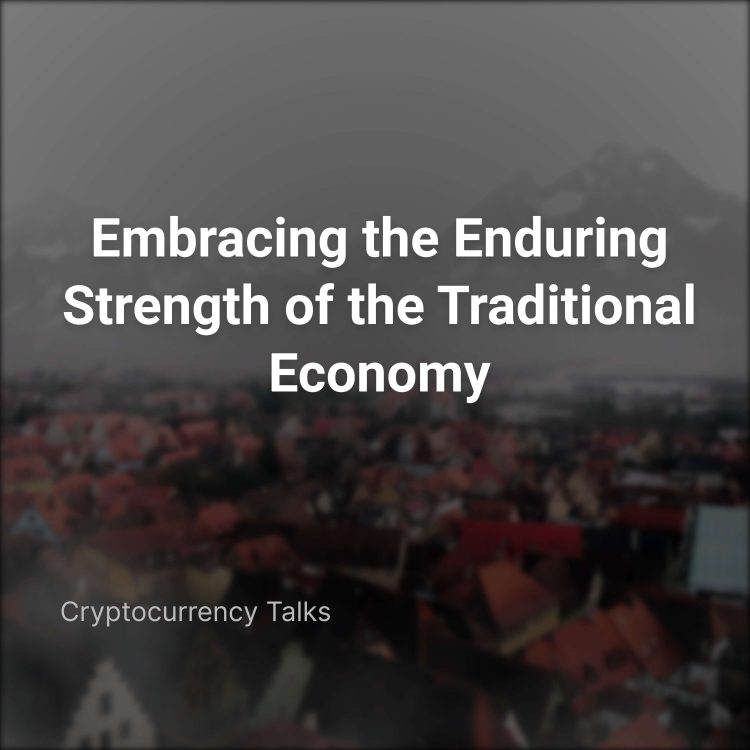The enduring strength of the traditional economy lies in its ability to preserve cultural heritage and adapt to modern contexts. In this blog post, we will explore the importance of traditional economic practices, the challenges and opportunities in sustaining them, and the ways in which traditional economic models can be adapted to thrive in today’s world. Embracing the traditional economy is crucial for maintaining cultural identities and promoting sustainable economic practices. Join us as we delve into the significance of embracing and preserving the traditional economy.
The Importance of Traditional Economic Practices
In today’s rapidly changing world, the traditional economy holds significant importance due to its role in preserving cultural heritage and fostering community sustainability. Here are some key points highlighting the importance of traditional economic practices:
- Cultural Preservation: The traditional economy plays a pivotal role in preserving unique cultural practices, rituals, and craftsmanship that have been passed down through generations.
- Community Cohesion: It fosters a sense of belonging and cooperation within communities, promoting social cohesion and solidarity.
- Sustainable Practices: Many traditional economic activities are inherently sustainable, emphasizing harmony with nature and the efficient use of resources.
- Local Empowerment: Traditional economies often empower local communities by providing livelihoods and economic opportunities that are rooted in indigenous knowledge and skills.
By recognizing and supporting the significance of traditional economic practices, societies can ensure the preservation of invaluable cultural heritage while leveraging sustainable and community-centered economic models.
Preserving Cultural Heritage Through Traditional Economy
Preserving cultural heritage through a traditional economy not only safeguards age-old customs and practices but also helps in promoting sustainable living. By embracing traditional economic practices, communities can maintain their unique identity and pass on invaluable skills and knowledge to future generations. The traditional economy fosters a deep sense of community and interconnectedness, strengthening social bonds and mutual support. Moreover, it serves as a repository of indigenous wisdom, preserving ancient techniques for resource management and craftsmanship. This sustainable approach to trade and production also reduces overreliance on external resources, fostering self-sufficiency and resilience.
In comparison, modern economies often prioritize mass production and consumption, leading to the exploitation of natural resources and loss of cultural diversity. Conversely, the traditional economy embodies a harmonious relationship with nature, emphasizing equilibrium and respect for the environment. Through the preservation of traditional economic practices, communities can not only honor their heritage but also contribute to the global movement towards sustainability and cultural diversity.
By integrating traditional economic models with contemporary strategies, societies can benefit from the best of both worlds – preserving their cultural riches while adapting to evolving socioeconomic dynamics.
Challenges and Opportunities in Sustaining Traditional Economy
Sustaining a traditional economy presents both challenges and opportunities that are important to consider. Understanding these dynamics can help communities and policymakers make informed decisions to support and preserve traditional economic practices.
Challenges
- Globalization: Traditional economies may struggle to compete in a global market, impacting local businesses and artisans.
- Limited Technological Integration: The lack of modern technology adoption can hinder efficiency and competitiveness.
- Environmental Pressures: Traditional economic activities may face environmental sustainability challenges.
Opportunities
- Cultural Tourism: Traditional economies can benefit from cultural tourism, offering unique experiences to visitors.
- Artisanal Revival: There is a growing global demand for authentic, handmade products, creating opportunities for traditional artisans.
- Community Resilience: Traditional economies often foster strong community ties, providing a foundation for resilience and mutual support.
Balancing these challenges and opportunities is crucial for the sustainable preservation of traditional economies in an ever-evolving global landscape.
Adapting Traditional Economic Models to Modern Contexts
In today’s rapidly evolving world, the traditional economy faces the challenge of adapting to modern contexts while preserving its core values. Here are some key points to consider when adapting traditional economic models to the demands of the contemporary landscape:
Incorporating Technology: Integrating modern technology into traditional economic practices can enhance efficiency without compromising authenticity. For example, traditional artisans can utilize e-commerce platforms to reach a global audience while maintaining their traditional production methods.
Sustainable Practices: Emphasizing sustainable production and consumption aligns with both traditional economic principles and modern environmental concerns. By prioritizing sustainable practices, traditional economies can thrive in an environmentally conscious marketplace.
Education and Innovation: Cultivating a new generation of artisans and entrepreneurs through education and innovation programs can revitalize traditional economic sectors. This ensures the transfer of traditional knowledge to future generations while fostering innovation and growth.
By embracing these strategies, traditional economies can navigate the complexities of the modern world, finding a balance between time-honored practices and contemporary demands.











